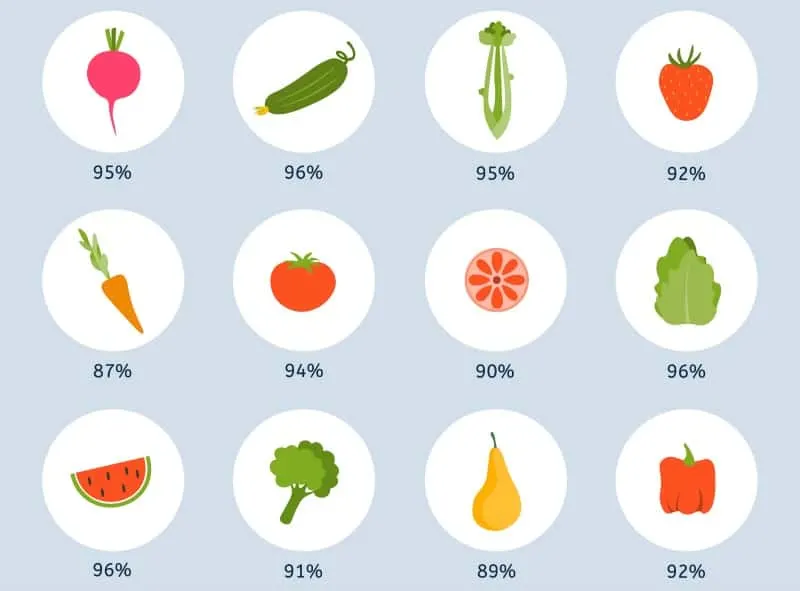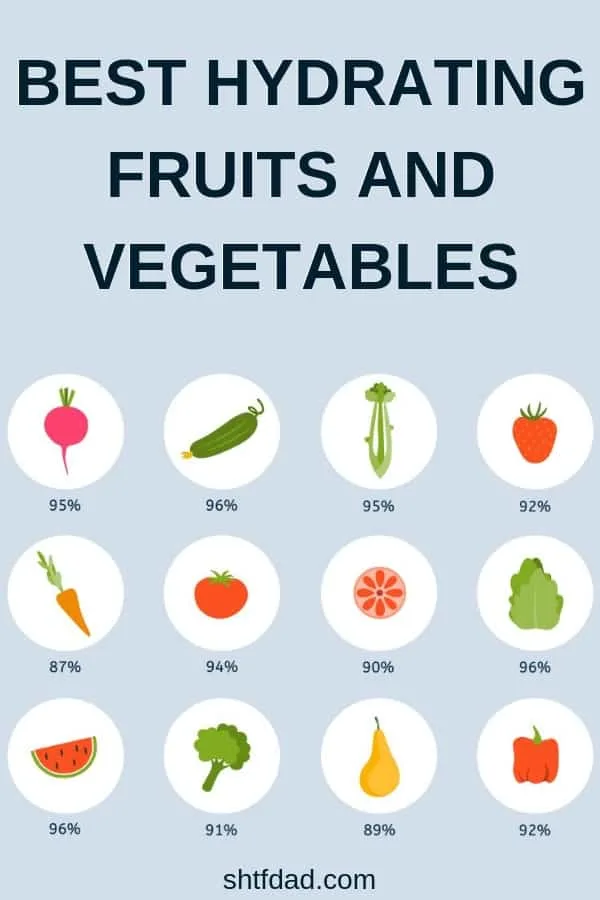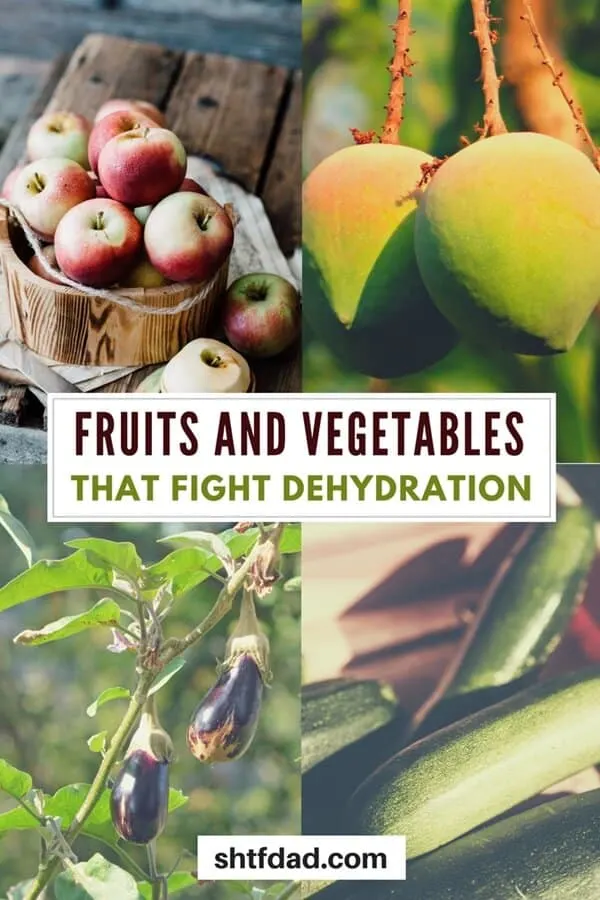SHTFDad may collect a share of sales or other compensation from the links on this page.
It’s always important to keep your body properly hydrated, but it’s especially crucial in the hot summer months.
If you’re concerned about dehydration or just searching for other ways to hydrate your body, then turn to these nutritious hydrating fruits and vegetables.
The bonus is that most of these can be grown in your own home garden.
If you have kids this knowledge is a great way to ensure your children are having enough fluids. I purposely grew apples and broccoli for this very reason.
When we go for long drives I always pick up a handful of apples and have celery in the car to munch on but mostly for the water content.
Best Hydrating Fruits and Vegetables

Most Hydrating Fruits
- Apples are a rich source of water and fiber.
- Blueberries are a well-known superfruit that battles a host of issues. They are also a fine source of hydration since they’re about 85% water.
- Cantaloupes are about 90% water and are a rich source of vitamin A and vitamin C.
- Grapefruit is around 90% water and is a superb source of vitamin C. They’ve also been known to reduce insulin levels.
- Grapes are a source of the antioxidant resveratrol.
- Kiwi is a good fruit to turn to for both hydration and vitamin C.
- Mango – not only are mangoes good for hydrating, but they offer the nutritional benefits of vitamin A, vitamin B6, vitamin C, and fiber.
- Oranges are about 87% water and a wonderful source of vitamin C.
- Pears are a great source of water and fiber.
- Peaches are a good source of hydration by combining water with potassium, an important electrolyte.
- Pineapples are not only a hydrating fruit, but they are also an excellent source of bromelain, a natural anti-inflammatory compound.
- Raspberries – at about 85% water, not only can raspberries hydrate, but they are a wonderful source of fiber and the antioxidant ellagic acid.
- Star fruit is about 91% water and is a good source of the antioxidant epicatechin. Just beware of it if you suffer from kidney problems because it also contains oxalic acid.
- Strawberries consist of 92% water and are an excellent source of vitamin C and folate.
- Watermelon is a hydration superstar and actually hydrates people better than just water alone. This melon is 92% water and a decent source of lycopene, calcium, sodium, potassium, and magnesium.
Hydrating Vegetables
- Bell Peppers – consisting of 92% water, bell peppers are a good source of vitamin C, vitamin B6, thiamine, beta carotene, and folic acid. (Folic acid is also an important key in fighting neural tube defects in fetuses.)
- Broccoli is roughly 91% water and a source of vitamin A, vitamin C, calcium, potassium, and fiber.
- Carrots consist of 82% water and are the best source of beta-carotene of all the fruits and vegetables.
- Cauliflower is about 92% water and a good source of vitamins and phytonutrients that help to lower cholesterol and battle cancer.
- Celery is about 96% water and contains vitamin A, vitamin C, vitamin K, folate, amino acids, and mineral salts. Did you know some foods hydrate better than water? Celery is one of them.
- Cooling cucumbers not only have the highest water content of any fruit or veggie (almost 97% water), but they are also a good source of vitamin C and caffeic acid.
- Eggplants have high water content and are also a fiber-rich food.
- Lettuce grows well in the spring and fall and performs well in a shade garden. The lettuce leaves are made up of about 94% water, so eating them definitely gives your body a hydration boost.
- Radishes are about 95% water and a good source of the antioxidant catechin.
- Spinach hydrates and provides the health benefits of lutein, potassium, fiber, folate, protein, vitamin A, and vitamin C. It contains about 91% water.
- Tomatoes consist of 95% water and contain lycopene, a possible cancer-fighting nutrient found in tomatoes.
- Zucchinis are about 95% water and a good source of vitamin A, vitamin C, folate, and potassium.


Resources:
